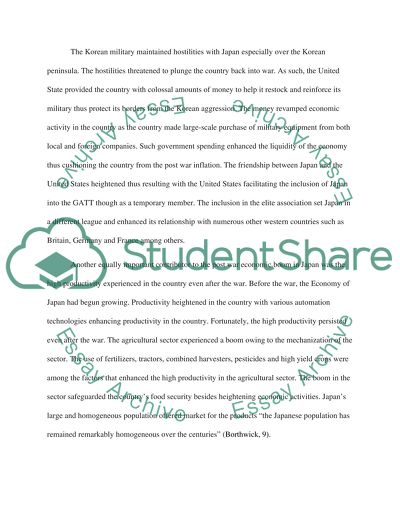Cite this document
(“Economic Development of Japan after World War II Essay”, n.d.)
Economic Development of Japan after World War II Essay. Retrieved from https://studentshare.org/macro-microeconomics/1670846-economic-development-of-japan-after-world-war-ii
Economic Development of Japan after World War II Essay. Retrieved from https://studentshare.org/macro-microeconomics/1670846-economic-development-of-japan-after-world-war-ii
(Economic Development of Japan After World War II Essay)
Economic Development of Japan After World War II Essay. https://studentshare.org/macro-microeconomics/1670846-economic-development-of-japan-after-world-war-ii.
Economic Development of Japan After World War II Essay. https://studentshare.org/macro-microeconomics/1670846-economic-development-of-japan-after-world-war-ii.
“Economic Development of Japan After World War II Essay”, n.d. https://studentshare.org/macro-microeconomics/1670846-economic-development-of-japan-after-world-war-ii.


